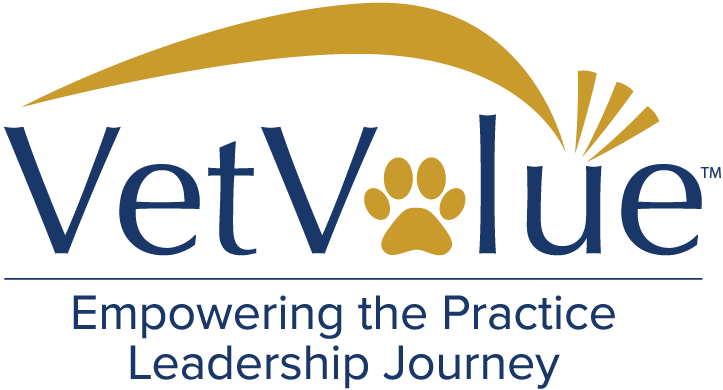How will private equity-backed veterinary practice consolidators navigate 2024?
You can read the 2023 iteration of this document here. This text explains how increasing interest rates impact private equity funds and how private equity views the veterinary industry and veterinary services market, in general.
As the operating environment is continuous, and change tends to be marginal, many of the themes I covered at the beginning of 2023 still apply:
- Higher interest rates continue to weigh on sector valuations which is delaying private equity exits within veterinary services, as well as in many other sectors
- More expensive capital has made veterinary practice acquirers more selective with their acquisition strategies. Many acquirers now avoid more marginal acquisitions that they might have previously jumped at, while others seem to be sitting on the sidelines. As a result, while premium general practice companion hospitals remain highly sought after and continue to command attractive valuations, an increasing number of practices that previously may have found a home with a corporate group will receive no corporate interest.
- New service models and new consolidators are appearing and ramping up. De novo development is increasingly popular while urgent care is filling gaps in the service market
Consolidators are Becoming More Selective
How one corporate consolidator might seek to accomplish these two goals will vary from how another does it. At the most basic level, the acquirer can set a cap on the multiples it will pay for any acquisition. This is quite a crude approach, but not unheard of.
The issue with this approach is that it will tend to orient the acquirer towards purchasing practices that are turnarounds. Turnarounds tend to be high risk and high reward endeavors. For this reason, this approach may conflict with the goal of enhancing the average return earned per acquisition, particularly if you do not have powerful operational chops.
Most acquirers are taking a more subtle approach. Many are curtailing, or stopping altogether the acquisition of small, independent general practices while targeting acquisitions only in specific markets they have deemed to be attractive. Many acquirers are also reducing the cash paid at the close by offering more consideration in notes, earn-outs, or equity, with strings attached. Finally, there seems to be a greater focus on “sticking to your knitting”, which in most cases means ignoring every acquisition opportunity that is not a general practice.
There remain many willing sellers in the market as the supply of practices for sale is driven by an aging owner population, among other things. Steady supply with shrinking, or more fickle demand puts downward pressure on prices.
The Private Equity Investment Cycle

In good markets, the cycle can speed up, in more challenging markets, the cycle can slow down. With good markets, perhaps a fund is raised, invested, and exited within four years. In more challenging markets, perhaps four years becomes six, or eight.
Private equity firms obtain clients based on their investing track record as measured by the returns they have generated on their investments. No private equity firm is incentivized to rush to exit an investment in a challenging market, if waiting might bring improvements in the value of the equity. However, private equity firms can’t wait forever because it is challenging to raise a new fund until a significant portion of the investments in the old fund have been exited.
I think many private equity firms find themselves in this kind of limbo today with their veterinary services investments. They have fully invested their funds and possibly exited certain investments, but they don’t like the prospect of exiting the remainder of their investments in today’s markets. There are some green shoots that might bring about a better environment to exit in the near term, but fundraising cannot proceed until more exits can be completed.
At some point, something will need to give. Private equity funds with the most patient LPs may hold their investments longer, but others will need to initiate a sale process for their veterinary service companies. The last major recapitalization in veterinary services was L Catterton’s recapitalization of Alliance in Dec 2021. Others have tried to recapitalize since then, but failed to do so. It is reasonably clear that a handful of large consolidators are starting to feel some pressure to recapitalize.
You need not be a master of the universe to understand that a desirable buyer of any veterinary consolidator group is a larger one, such as NVA, Pathway, VetCor, or the Mars group. As I explained in the 2023 outlook, the purchase of one veterinary group by another may create synergies which, all things equal, generally allow corporate acquirers to pay more for a business than another private equity firm can.

The option to recapitalize with another private equity firm (as opposed to another veterinary corporate) is not as attractive as it was in December 2021. Choosing to recapitalize in a less-than-today’s market will result in a lower valuation with more buyer-friendly terms.
Buyer-friendly terms mean worse outcomes for holders of the seller’s equity. In many cases, veterinarians who sold their practices in the last few years hold the seller’s corporate equity or joint venture equity. Now is the time when many technical provisions in the practice sale deal documents become incredibly important. Does the consolidator who bought your practice have the ability to force you to re-up a non-compete in a recapitalization, or to roll a portion of your JV or corporate equity into the buyer’s equity in a recapitalization? Does the consolidator have the ability to force you to stay employed after receiving a cash out on your equity?
In all cases, expect to be re-upped, rolled, or forced. All of these provisions are meant to give the private equity owner of the consolidator the ability to make the best exit possible. Expect some DVM holders of corporate equity to become collateral damage, and if you are selling your practice, make sure to hire an expert.
In general, private equity will continue to invest in acquiring existing DVM-owned practices and setting up new hospitals in attractive markets. Some consolidators will continue to sit on the sidelines, others will become more aggressive, all will be circumspect with their individual hospital acquisition programs, and all will be watching for an IPO of NVA or Pathway IPO.


